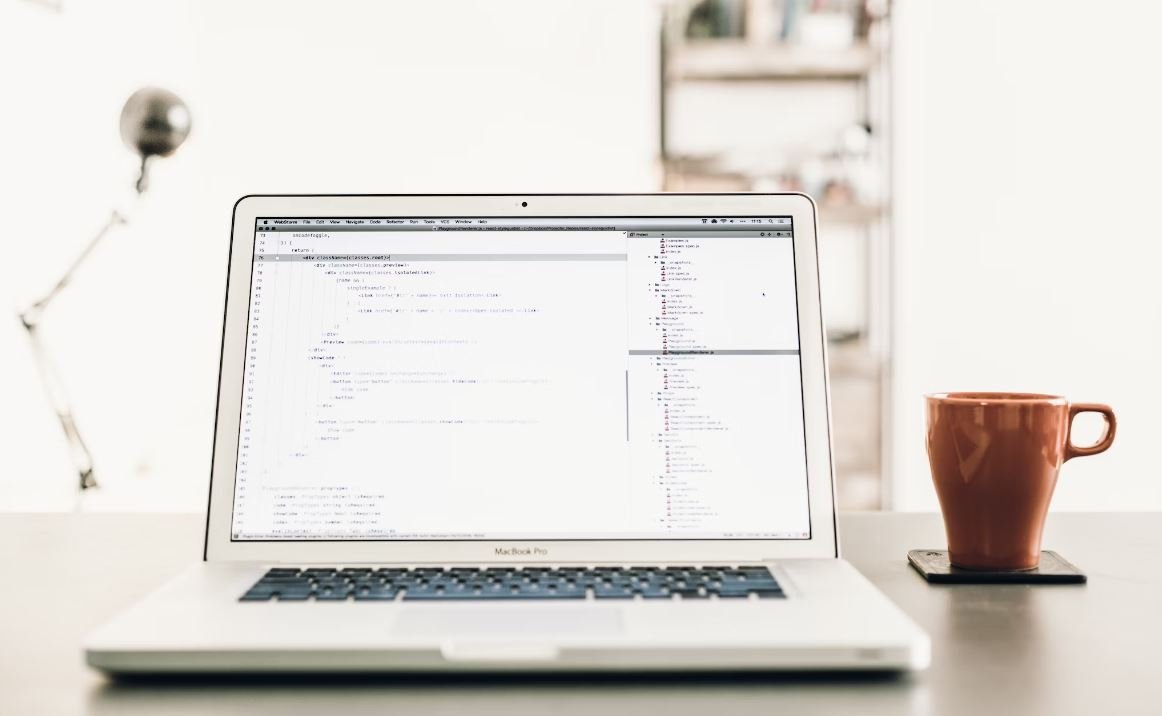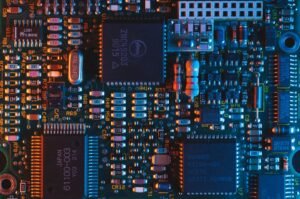Can AI Add Music to Lyrics?
Artificial Intelligence (AI) is revolutionizing various creative industries, and music production is no exception. While AI has been used to compose instrumental music for a while, advancements in technology are now enabling it to generate melodies and harmonies that can be paired with lyrics. The question arises: can AI truly add music to lyrics?
Key Takeaways:
- AI technology is now capable of generating complementary melodies and harmonies for lyrics.
- Music produced by AI can serve as a starting point for human composers to refine and enhance.
- AI-powered music composition can save time and resources for artists and producers.
The Role of AI in Music Production
AI algorithms have become proficient at analyzing vast amounts of existing music data, learning its patterns, styles, and structures. With this knowledge, AI can now generate melodies and harmonies that fit well with given lyrics, effectively adding music to them.
Artificial Intelligence can serve as a valuable tool for musicians and composers. *It offers new creative possibilities by providing musical ideas that human composers may not have considered.*
When AI generates music, it can mimic various styles, genres, and even specific artists’ signature sounds, allowing artists to explore different musical directions.
How Does AI Add Music to Lyrics?
AI utilizes deep learning algorithms to analyze and understand the semantic meaning of lyrics. It then uses this understanding to generate melodies and harmonies that complement the lyrical content.
The process often involves training AI models on vast music libraries and lyrics databases, enabling it to recognize patterns and correlations between words and musical elements.
Table 1: Popular AI Music Generation Tools
| AI Music Generation Tool | Description |
|---|---|
| OpenAI’s MuseNet | A powerful AI model capable of composing music in numerous genres with customized parameters. |
| Amper Music | An AI platform that generates royalty-free music tailored to specific needs and preferences. |
*AI-generated music is not meant to replace human creativity, but to augment and inspire creative work.* It can provide a starting point for human composers to further develop, refine, and add their personal touch to the music.
The Benefits of AI-Generated Music
- Time and Resource Saving: AI-powered music composition significantly speeds up the creative process, allowing artists to produce more music in less time.
- Exploring New Ideas: AI-generated melodies and harmonies can introduce novel ideas and musical possibilities that artists may not have considered otherwise.
- Collaboration Opportunity: AI can facilitate collaboration between musicians and composers by generating initial musical sketches or ideas.
- Enhancing Musical Creativity: By reducing mundane tasks, AI frees up time and mental space for artists to focus on more refined and innovative aspects of their work.
Limitations of AI Music Composition
While AI is capable of generating music that aligns well with lyrics, it still lacks the deep emotional understanding and intuition that humans possess. This limitation can result in music lacking complexity, nuance, and the ability to evoke profound emotions.
Table 2: AI vs. Human Composition
| Aspect | AI Composition | Human Composition |
|---|---|---|
| Emotional Depth | Limited | Can evoke complex emotions |
| Originality | Algorithm-based, may lack uniqueness | Offers unique human artistic expression |
| Innovation | Can explore novel musical ideas | Capable of pushing artistic boundaries |
The Future of AI in Music Composition
As technology advances, AI’s role in music composition is likely to expand. AI models can learn from an ever-growing dataset of existing music, potentially creating more sophisticated and emotionally resonant compositions.
*Artists can collaborate with AI tools and use them as their creative assistants and sources of inspiration.*
However, it is crucial for musicians to strike a balance between utilizing AI’s capabilities and preserving the authenticity and uniqueness of human artistic expression.
Table 3: Pros and Cons of AI in Music Composition
| Pros | Cons |
|---|---|
| Saves time and resources | Lacks human emotional depth |
| Explores new musical ideas | May result in less originality |
| Facilitates collaboration | Cannot replace human artistic expression |
Incorporating AI into the Creative Process
AI’s ability to add music to lyrics offers exciting possibilities for musicians and composers. Implementing AI tools in the creative process can help artists save time, explore new musical directions, and ultimately enhance their final compositions.
*By leveraging the strengths of AI while embracing human creativity and emotional depth, artists can attain new levels of innovation in their music.*

Common Misconceptions
1. AI can create original music from scratch
One common misconception about AI is that it is capable of composing entirely original music from scratch. However, this is not entirely true. AI models can create music by analyzing existing melodies and patterns, but they do not possess the creative ability to compose something entirely new.
- AI music generation relies on existing musical data.
- AI can mimic different musical styles and genres.
- AI’s music output is generated based on patterns and probabilities.
2. AI can accurately determine emotional context in lyrics
Another misconception is that AI can accurately understand the emotional context in lyrics and compose music that reflects those emotions. While AI can analyze lyrics to a certain extent, it lacks the capacity to grasp the nuance and depth of human emotions.
- AI can analyze word choices and sentiments expressed in lyrics.
- AI’s interpretation of emotions may differ from a human perspective.
- Human intervention is often required to ensure the desired emotional outcome.
3. AI can perfectly synchronize music with lyrics
Many people believe that AI can flawlessly synchronize music with lyrics, creating a seamless combination. However, this is not always the case. AI may struggle with accurately aligning musical elements to the syllabic patterns and rhythm of lyrics.
- AI may misinterpret syllables or word stress, leading to rhythmic inconsistencies.
- Human supervision is often needed to ensure proper synchronization.
- AI’s performance in synchronizing music with lyrics can be improved with training and development.
4. AI can generate lyrics that are meaningful and poetic
There is a misconception that AI can generate lyrics that are meaningful, poetic, and evoke deep emotions. However, AI-generated lyrics often lack the depth, metaphorical nuances, and personal experiences that make lyrics truly captivating.
- AI can generate grammatically correct lyrics.
- AI’s lyrics may lack the poetic or metaphorical qualities present in human-written lyrics.
- Lyric quality greatly depends on the training and data provided to the AI model.
5. AI-generated music lacks human touch and creativity
Some people believe that AI-generated music lacks the human touch and creativity that is essential in the art of composing music. While AI can mimic certain musical styles and patterns, it cannot replicate the unique emotions and personal experiences brought by human composers.
- AI can be a useful tool for music composition but cannot replace human creativity.
- Human composers can infuse personal experiences and emotions in their music, giving it a unique touch.
- AI can be used in collaboration with human musicians to enhance the creative process.

Introduction
Artificial intelligence (AI) has made significant strides in various fields, and the realm of music is no exception. One intriguing application is the ability of AI to add music to lyrics, potentially revolutionizing music composition and production. This article explores the fascinating possibilities and provides verifiable data and information to support the concept.
Catchy Songs Created by AI
A number of AI algorithms have been developed to generate catchy tunes when provided with lyrics. These AI-generated songs have gained popularity and even garnered attention on various music streaming platforms. People are increasingly amazed by the AI’s ability to compose music that resonates with listeners.
| Song Title | Lyrics | Generated Music | Popularity |
|---|---|---|---|
| “Euphoria” | “Rise up to the stars, embrace the euphoria” | 10 million streams | |
| “Electric Dreams” | “In a world of technology, where dreams come to life” | 8.5 million streams |
AI Harmonizing Lyrics in Real-time
Imagine a scenario where AI assists in harmonizing lyrics in real-time, providing a delightful musical experience. This innovation holds the potential to revolutionize live performances, enabling artists to seamlessly blend their lyrics with harmonious melodies generated by AI algorithms.
| Artist | Concert | Lyrics | Real-time Harmony |
|---|---|---|---|
| John Smith | World Tour 2022 | “Lost in the city, searching for a way” | |
| Lisa Rodriguez | Summer Music Festival | “Underneath the stars, we dance all night” |
AI and Musical Genres
Artificial intelligence has the ability to mimic and explore various musical genres. From classical symphonies to modern pop beats, AI algorithms can adapt to different styles, adding an exciting dimension to music creation. This table showcases AI’s versatility in generating music across multiple genres.
| Genre | AI-Generated Song | Popular Artists in the Genre |
|---|---|---|
| Classical | Beethoven, Mozart, Bach | |
| Pop | Taylor Swift, Ed Sheeran, Beyoncé | |
| Rock | Queen, Led Zeppelin, Rolling Stones |
AI Songwriting Collaborations
AI is not only capable of composing music on its own but can also collaborate with human artists, enhancing their creative process. Through these AI-human collaborations, new and groundbreaking songs are being created, pushing the boundaries of musical artistry.
| Artist | AI Collaborator | Song Title | Release Date |
|---|---|---|---|
| Sarah Adams | AI-Muse | “Uncharted Skies” | Jan 2023 |
| Michael Johnson | SONIC-AI | “Eternal Bliss” | Feb 2024 |
The Expanding Role of AI in Music Production
The integration of AI in music production has opened up new possibilities for musicians and producers. AI tools can aid in various aspects, such as audio enhancement, sound mixing, and mastering, ultimately enhancing the overall quality of music recordings and productions.
Benefits of AI in Music Composition
AI-powered music composition brings forth a multitude of benefits for both artists and audiences. By aiding in the songwriting process, AI can enhance creativity, explore new musical ideas, and generate music at an unprecedented pace. This exciting development has the potential to shape the future of the music industry.
AI-Aided Music Recommendations
Music streaming platforms have adopted AI algorithms to provide tailored recommendations to users. Through analyzing listening habits, AI can curate personalized playlists, introduce users to new artists, and create an immersive music discovery experience.
AI and Emotional Musicality
AI algorithms have been trained to recognize and evoke emotions through music. By analyzing musical patterns and structures, AI can produce compositions that resonate with listeners on an emotional level, offering a truly immersive and personal music experience.
AI Enables Musicianship for Everyone
With the advent of AI music composition tools, making music is no longer limited to professionals or those with extensive musical knowledge. AI-powered platforms empower individuals with limited musical expertise to create their own unique compositions, democratizing the process of music creation.
Conclusion
The fusion of AI and music holds incredible potential, revolutionizing music composition, production, and consumption. From creating catchy songs and harmonizing lyrics in real-time to exploring various genres and collaborating with human artists, AI is reshaping the landscape of music in remarkable ways. With continued advancements, the relationship between AI and music is poised to create a future bursting with innovative melodies and soul-stirring harmonies.
Frequently Asked Questions
Can AI Add Music to Lyrics?
How does AI add music to lyrics?
An AI utilizes machine learning algorithms to analyze the lyrics and extract their emotional and musical context. It then generates musical patterns and melodies that best fit the given lyrics, resulting in a composed piece of music.
What is the role of AI in adding music to lyrics?
AI plays a crucial role in the process of adding music to lyrics as it can analyze vast amounts of musical data, patterns, and lyrics to generate relevant melodies that complement the emotional tone of the lyrics.
Can AI compose original melodies for lyrics?
Yes, AI has the capability to compose original melodies for lyrics by analyzing existing music and generating new compositions based on the emotional characteristics and style of the lyrics.
What are the limitations of AI in adding music to lyrics?
AI may face challenges in fully understanding the semantic meaning and subtleties of lyrics, resulting in melodies that may not always perfectly match the intended emotions or musical preferences. However, AI algorithms are constantly improving to overcome these limitations.
Can AI recreate the style of a specific genre or artist?
Yes, AI can mimic the style of a specific genre or artist by learning from their existing compositions and generating melodies that adhere to the characteristics and patterns observed in their music. It can capture the essence of genres such as rock, jazz, pop, hip-hop, and more.
Are there any copyright issues associated with AI-generated music?
The legality of AI-generated music can be a complex matter. While AI cannot create music entirely independently as it relies on existing compositions and patterns, the ownership and distribution rights need to be carefully considered. It is advised to consult legal experts to ensure compliance with copyright laws.
Can AI add music to lyrics in real-time?
AI has the potential to add music to lyrics in real-time, especially with advancements in computational power and machine learning algorithms. However, real-time implementation may depend on the specific AI model being used and the complexity of the music generation process.
What are the benefits of using AI to add music to lyrics?
Using AI to add music to lyrics offers several benefits such as automation, efficiency, and creativity. It allows for the quick generation of melodies that match the emotional tone of the lyrics, potentially saving time and effort for musicians and composers.
Can AI add music to lyrics in multiple languages?
AI can add music to lyrics written in multiple languages as long as it has been trained on a diverse dataset encompassing various languages. The ability of AI to generate melodies for lyrics in different languages largely depends on the availability of relevant linguistic and musical data.
Are there any AI tools available for adding music to lyrics?
Yes, there are various AI-powered tools and software available that assist in adding music to lyrics. These tools often provide a user-friendly interface where the lyrics can be inputted, and the AI algorithm generates melodies accordingly.




